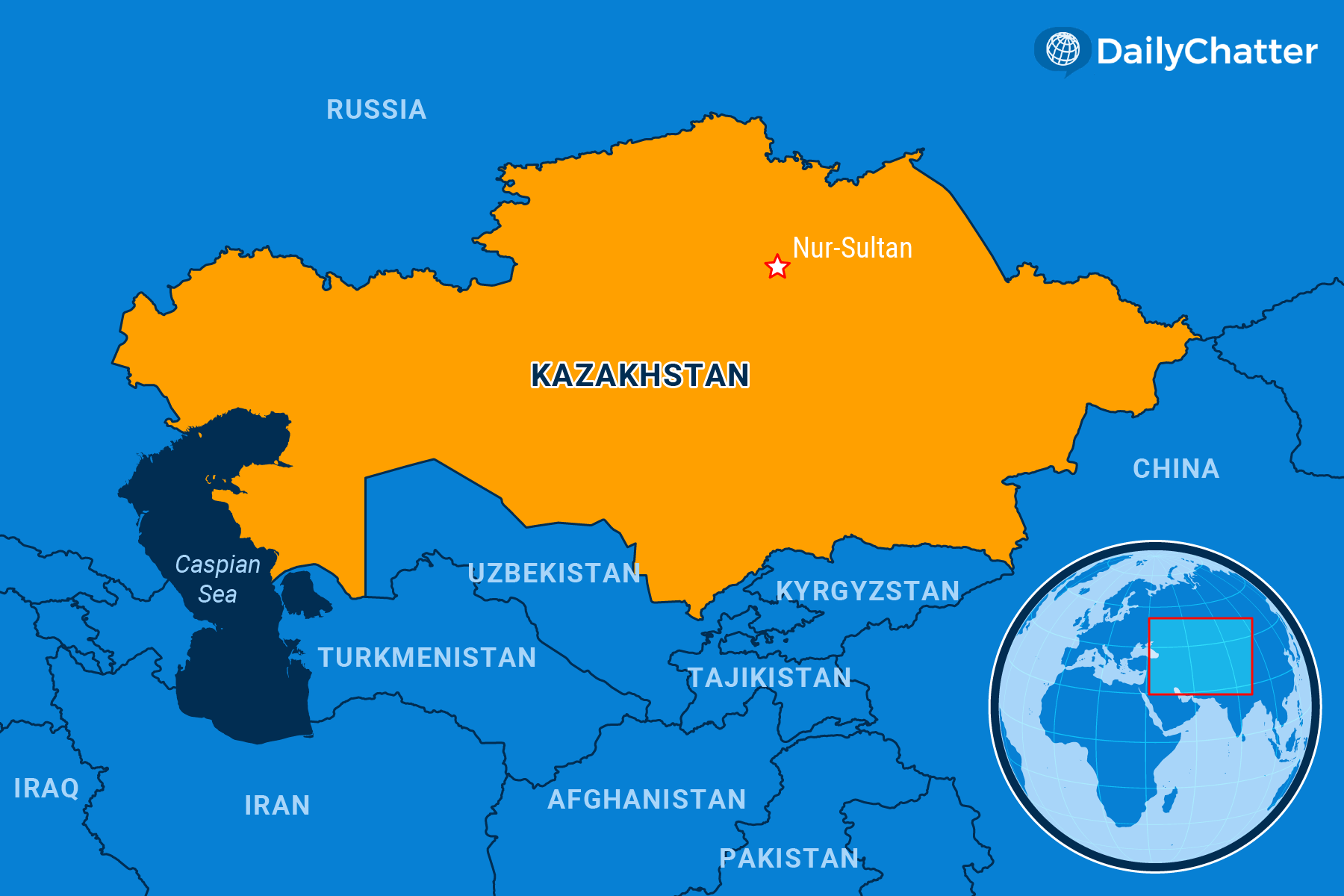Need to Know
June 14, 2022Going, Going, Gone
Kazakhstan

|
Listen to Today's Edition
|
Kazakhs overwhelmingly voted in favor of decentralizing government, reducing the power of the president, rescinding former president Nursultan Nazarbayev’s status as “Leader of the Nation,” and banning his family from official positions.
“We have shown that we are united in building the new, just Kazakhstan,” President Kassym-Jomart Tokayev said in a national address after the referendum last week, according to Reuters. “We must review the legislation which allowed a small group of people to concentrate the country’s economic resources in their hands and enjoy preferential status.”
Nazarbayev ran the oil-rich former Soviet republic and Russian ally in Central Asia for 30 years until he picked Tokayev as president. In January, civil unrest over fuel prices spiraled into demonstrations of discontent with the country’s corrupt political elites and clashes that resulted in 230 deaths. During the crisis, security officials attempted unsuccessfully to take over the country in a coup, precipitating Russian intervention to stabilize the situation.
Since then, Tokayev, rather than embracing authoritarianism, has promised a raft of changes, including reducing the power of his office and increasing the authority of parliament, eliminating the death penalty and reducing inequality, the Associated Press reported. Perhaps the most important change is the elimination of 81-year-old Nazarbayev’s role in the government and decision-making, Agence France-Presse added.
Writing in the Wall Street Journal, security analyst Kamran Bokhari described the referendum’s success as a “step toward democracy.”
Even so, the Diplomat said that while the changes are a step in the right direction, they are not as revolutionary as they may seem. For example, the stripping of Nazarbayev’s status is in line with the decline of his influence following the so-called coup attempt: he was already stripped of his position as the head of the National Security Council which a 2018 law guaranteed for life. And many of his family members had already resigned their positions or were detained.
The question now, asked Eurasian.net, is whether Tokayev’s so-called “New Kazakhstan” will allow for authentic opposition parties to run for office or use the “time-honored” approach of creating false opposition parties that appear to give voters a choice but really accommodate the current regime.
Some organizations such as Human Rights Watch called for the strengthening of human rights mechanisms, including the establishment of a constitutional court to ensure that rights are protected.
Analysts also warned that Kazakhstan was embarking on internal changes during a time when the global order was remarkably unstable, Euractiv explained. Kazakhstan borders both Russia and China at a time when both powers were reorienting their stances toward the West. From the Kazakh perspective, the uncertainty makes it extremely hard to predict the best path forward. China is also making overtures to expand their relationship, added Bloomberg.
In the meantime, Kazakhstan is struggling to deal with the post-pandemic, post-Russian-invasion of-Ukraine global economy. Kazakhs recently renamed the brand of the oil they export, for example, after they took a hit from sanctions that were preventing their energy exports along with Russia’s.
If democracy really is poised to flourish in Kazakhstan, it would be an exception to the rule in the region.
Not already a subscriber?
If you would like to receive DailyChatter directly to your inbox each morning, subscribe below with a free two-week trial.
Support journalism that’s independent, non-partisan, and fair.
If you are a student or faculty with a valid school email, you can sign up for a FREE student subscription or faculty subscription.
Questions? Write to us at hello@dailychatter.com.

